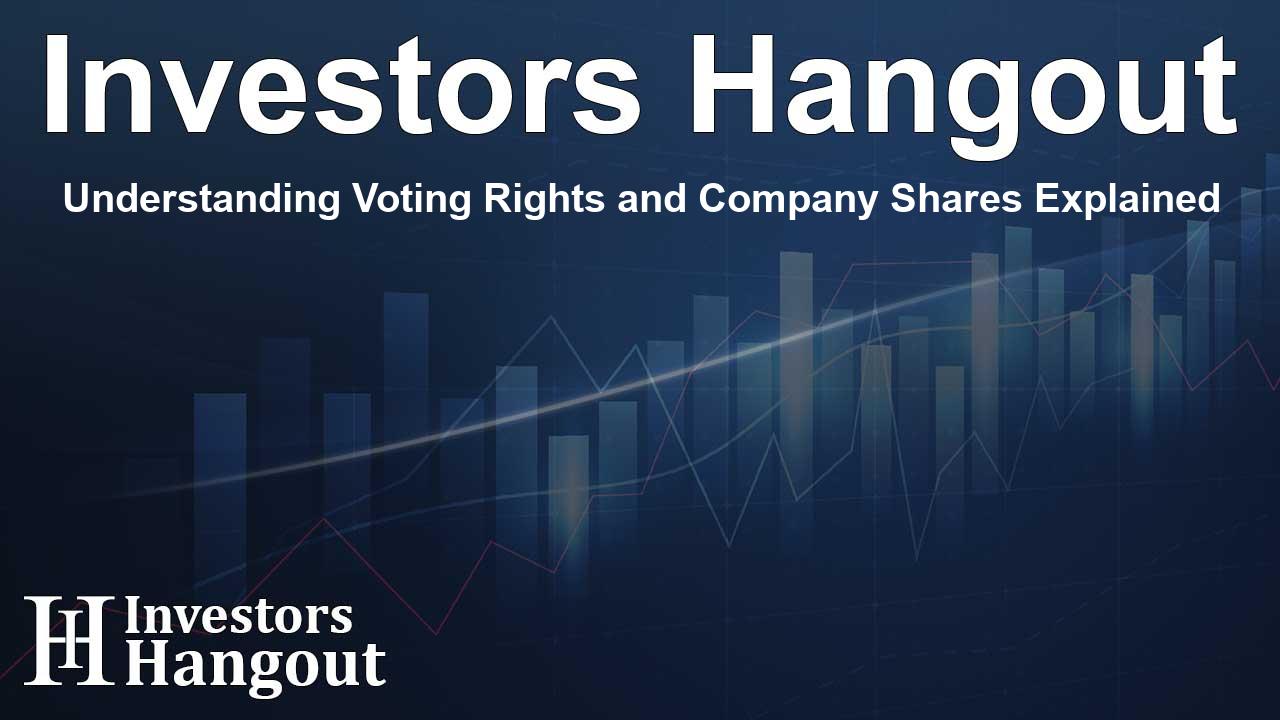Understanding Voting Rights and Company Shares Explained

Total Shares and Voting Rights Overview
Understanding the total number of voting rights and shares a company holds is crucial for investors and stakeholders. This information ensures transparency and helps in making informed decisions. Let’s dive into the details concerning the shares and voting rights of the company.
Key Financial Information
The company is listed on NYSE Euronext Paris, which allows for trading in a global market environment. On a recently reported date, the total number of shares was confirmed to be 102,847,501. This figure is important as it represents the company's ownership structure and can influence stock performance.
Voting Rights Breakdown
For investors, the total number of voting rights can greatly impact shareholder meetings and decision-making processes. On the aforementioned reporting date, the total gross voting rights stood at 102,847,501. However, the net total of voting rights, which accounts for shares without voting rights, was reported at 102,582,335. It's essential to understand this distinction, as it impacts voting power within the company.
Significance of Net Voting Rights
The net total of voting rights is derived by subtracting shares that lack voting rights from the total number of shares. Understanding this net figure is vital for shareholders. The differentiation helps assess voting power and influence within the company’s governance.
Market Influence
The dynamics of total shares and voting rights can also reflect market trends and investor sentiment. A company with a large number of shares may be perceived differently than one with fewer shares. This perception can affect stock prices and investor interest. With tickers such as Paris:DBV and Nasdaq:DBVT, these factors specifically appeal to a wide audience of potential investors looking to capitalize on opportunities.
Conclusion on Voting Rights and Shares
In conclusion, monitoring the total number of shares and voting rights is crucial for existing and potential investors. These numbers provide a snapshot of the company's ownership structure and influence in decision-making processes. Investors should remain vigilant and aware of how these elements can affect their stakes in the company.
Frequently Asked Questions
What are voting rights?
Voting rights are rights granted to shareholders to vote on important company matters such as board elections and other significant business decisions.
How does the number of shares affect voting?
The total number of shares determines the voting power each shareholder has. More shares equate to greater influence in company decisions.
What is the difference between gross and net voting rights?
Gross voting rights include all voting shares, while net voting rights exclude shares that do not confer voting power.
Why is tracking voting rights important for investors?
Tracking voting rights is critical because it helps investors understand their influence and leverage in company governance and strategic decisions.
Where can I find more information about a company’s shares?
More detailed information can typically be found in the company’s official reports, financial statements, or regulatory filings.
About Investors Hangout
Investors Hangout is a leading online stock forum for financial discussion and learning, offering a wide range of free tools and resources. It draws in traders of all levels, who exchange market knowledge, investigate trading tactics, and keep an eye on industry developments in real time. Featuring financial articles, stock message boards, quotes, charts, company profiles, and live news updates. Through cooperative learning and a wealth of informational resources, it helps users from novices creating their first portfolios to experts honing their techniques. Join Investors Hangout today: https://investorshangout.com/
Disclaimer: The content of this article is solely for general informational purposes only; it does not represent legal, financial, or investment advice. Investors Hangout does not offer financial advice; the author is not a licensed financial advisor. Consult a qualified advisor before making any financial or investment decisions based on this article. The author's interpretation of publicly available data shapes the opinions presented here; as a result, they should not be taken as advice to purchase, sell, or hold any securities mentioned or any other investments. The author does not guarantee the accuracy, completeness, or timeliness of any material, providing it "as is." Information and market conditions may change; past performance is not indicative of future outcomes. If any of the material offered here is inaccurate, please contact us for corrections.